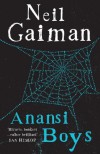William's Book Blog
Mostly book reviews. Very rarely I'll allow William Campbell Powell (author) to write a blog entry on publishing activity, but he's under orders to keep that stuff over on his Facebook page and on http://williamcampbellpowell.com
Currently reading
The Summer Prince (Nebula/Andre Norton shortlist).

While not free of the tropes of the genre, this book manages to rise above them, striking a mood that is reminiscent of A Wizard of Earthsea, while being utterly different in so many respects.
June, the protagonist, lives in a post-apocalyptic matriarchy, situated in Brazil. She is a talented artist, of the privileged classes, with a hidden side, secretly using her art as protest. If you're British and reading this, think Banksy.
Humanity has fragmented, and her city state is structured, highly controlled in its interactions with other splinters, of whom we get tantalising glimpses. There is a tension in the level of tech - the rulers (the Aunties) keep out the most advanced tech, but there's still tech beyond the current day, upon which June relies for her rebellion.
The political system is out of balance, despite its pretensions, and the novel explores this with one thread, as the iconoclastic Enki - the Summer King whose purpose is to legitimise the matriarchy - lives out his short reign. Enki walks a tightrope, between the letter of the law that made him king, and the spirit of the law that requires him to put the City above obedience to its rulers.
In a conventional YA novel, June and Enki would lead a rebellion against the Aunties, overthrowing them over the course of three novels; certainly at the 75% mark in the novel, I feared it it would sag into the waiting mould.
Fortunately, Johnson transcended such a predictable outcome - and while some readers might claim to predict that outcome, I was careful to let the novel take me where it would, and was pleased and gently surprised by the ending.
It's not strong on tension or conflict; its merits are far more in the richness of the language - I took longer to read the book than many novels of its length because I stayed to enjoy the words, rather than skimming over them to get to the next explosion - and the more subtle nuances of emotion.
Perhaps there is scope for a sequel, but I hope none appears. The novel is beautifully complete as it stands.









 3
3
 4
4